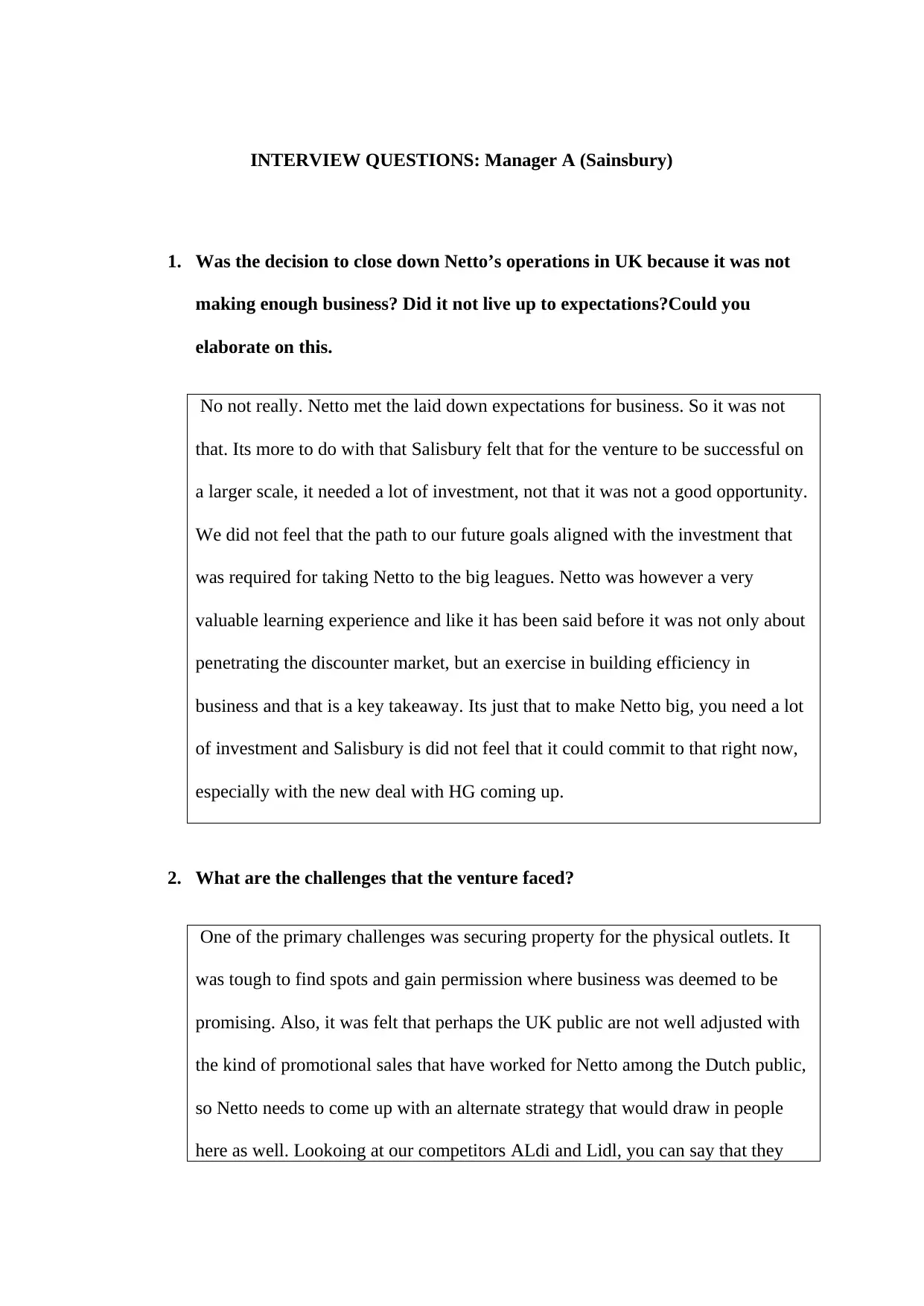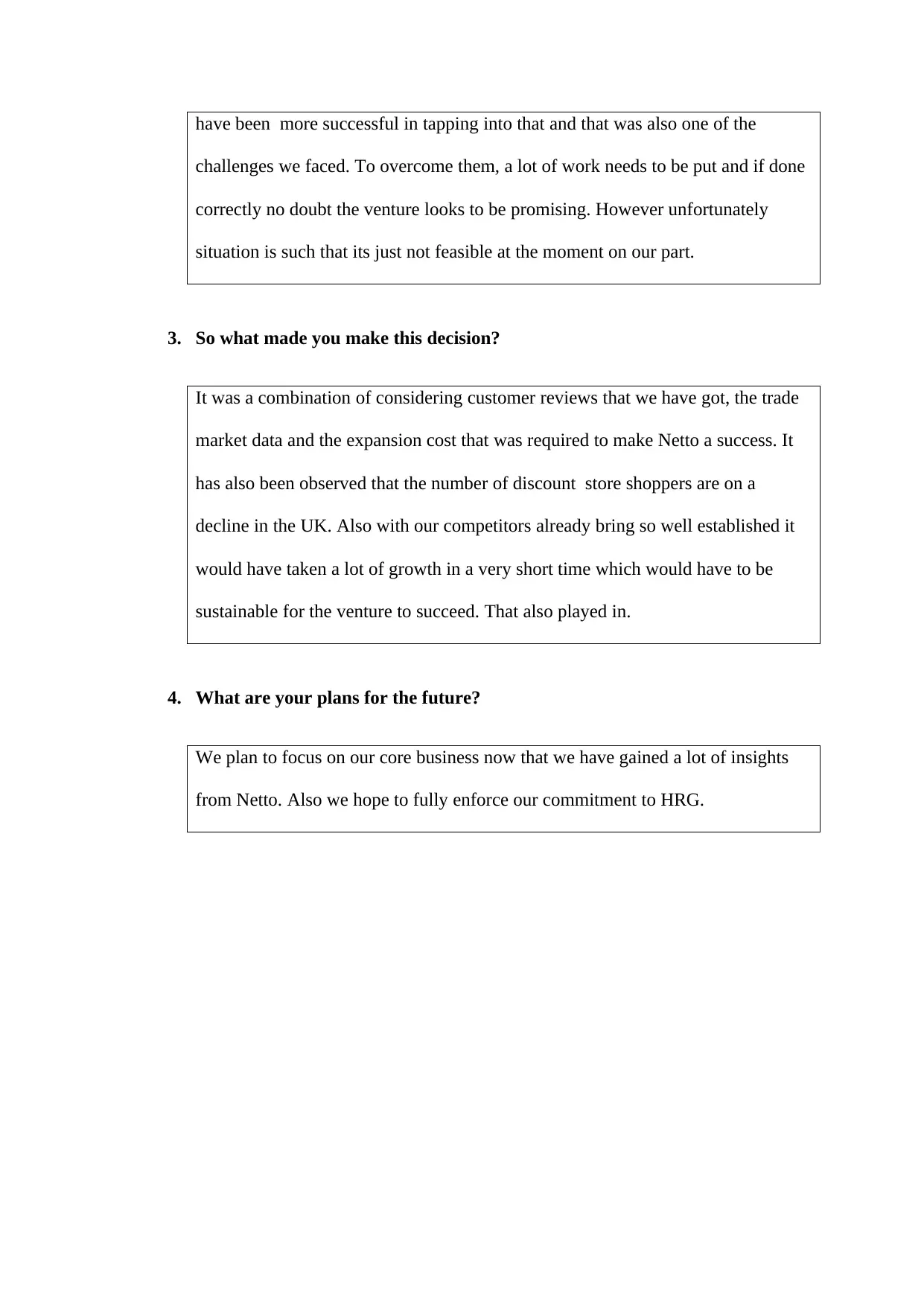Analysis of Sainsbury's Netto Closure: Interview Insights & Strategy
VerifiedAdded on 2023/06/13
|2
|508
|247
Case Study
AI Summary
This case study examines the reasons behind Sainsbury's decision to close Netto stores, based on an interview with a manager. The decision wasn't due to Netto underperforming, but rather Sainsbury's assessment that significant investment would be required for Netto to achieve large-scale success, a commitment they were unwilling to make, especially with the upcoming HRG deal. Challenges included securing suitable properties and adapting Netto's promotional strategies to the UK market. The decision factored in customer reviews, market data, and the competitive landscape, leading Sainsbury's to refocus on its core business and commitment to HRG. Desklib provides access to similar case studies and resources for students.
1 out of 2








![[object Object]](/_next/static/media/star-bottom.7253800d.svg)